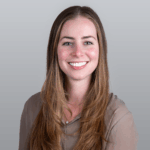"How I Went from" is an ongoing blog series that highlights our employees' different journeys to InterWorks. The results are pretty diverse, but each story is special in its own right.
This blog post is Human-Centered Content: Written by humans for humans.
I’m Haleigh Schwartz, one of the new hires recently brought on to InterWorks as an analytics consultant. The title of this blog is not one I ever thought I’d claim myself, and is frankly something I’m still getting used to — you’ll find out why soon enough.
Unlike my career journey, my hobbies outside of work have remained stable and familiar. At any given time, you can likely find me running, biking, hosting game nights or exploring new cuisine here in Portland, Oregon. These familiarities have grounded me while I’ve trekked along the winding path that has brought me to data consulting. The journey I took to get here has been a long, rewarding and occasionally terribly difficult one — A journey that started back in high school with one simple and not-at-all terrifying question:
What Do I Want to Be When I Grow Up?
It wasn’t until my senior year of high school that I started to think seriously about what I wanted to do with the rest of my life. My high school had each of us enroll in a class dedicated to “career success.” At the time, this amount of pressure felt normal — all seventeen-year-olds know what they’re good at and what they’ll want to be doing for the next fifty years, right?
But I didn’t.
I knew I was good at math and science, so I decided to start there. My seventeen-year-old self thought the only jobs a person could do that were “math-y” or “science-y” were engineering or medicine. After a single day shadowing an engineer, I knew immediately I didn’t want to sit behind a desk all day “doing math.” (The irony of this decision, as I now sit behind a desk thinking about numbers all day, has not escaped me.) With engineering off the table, this left medicine, so I went off to college as a pre-med biology major.
Why Medicine?
To be fair, I had additional ties drawing me to medicine. Throughout my life, I’ve witnessed several family members decline due to Alzheimer’s and various cancers, which understandably sparked a desire to help others like them. Now in college to do just that, I sought out positions to be “boots on the ground” in the medical field while I did my studies. With each job, as I witnessed people in all shades of life and death lie miserably in hospital beds, I was reminded of my loved ones. I stood by while providers made near impossible decisions on what treatment would truly be right for their patients, attempting to reconcile their medical needs with their humanity. Knowing these providers were tasked with the impossible, I witnessed lots of tragedy, and I felt there had to be a better way to provide dignifying medical care. I couldn’t stop myself from trying to figure out how to do so.
During this same time, I met a life-long friend. My friend is burdened with multiple incurable diseases, which I won’t name here to respect her privacy. During my time living with her, I had an intimate view of what it is like to truly suffer and battle through the American healthcare system’s inefficient and harmful practices.
Even when faced with the less-than-glamorous realities of the medical field, I still believed medicine was the only track for people who like science, so I just kept going.
A New Path
Thankfully, one of my professors introduced me to another world for science-minded individuals: Research.
When I was nineteen, Dr. Tracie Delgado gave me my first opportunity to work in a lab, where I helped contribute to her virology research, which was ultimately published by the American Society of Microbiology. I still remember the feeling of having her by my side, teaching me how to use a micropipette for the first time. Something about diving into the microscopic world excited me like medicine never had before.
That summer, I decided to combine my past experience with Alzheimer’s and my newly discovered love for research by pursuing neuroscience. I was accepted into the University of Washington’s Neuroscience Summer Student Program where I was able to work at the Allen Institute and go on rounds with the neurosurgery staff at Harborview Medical Center.
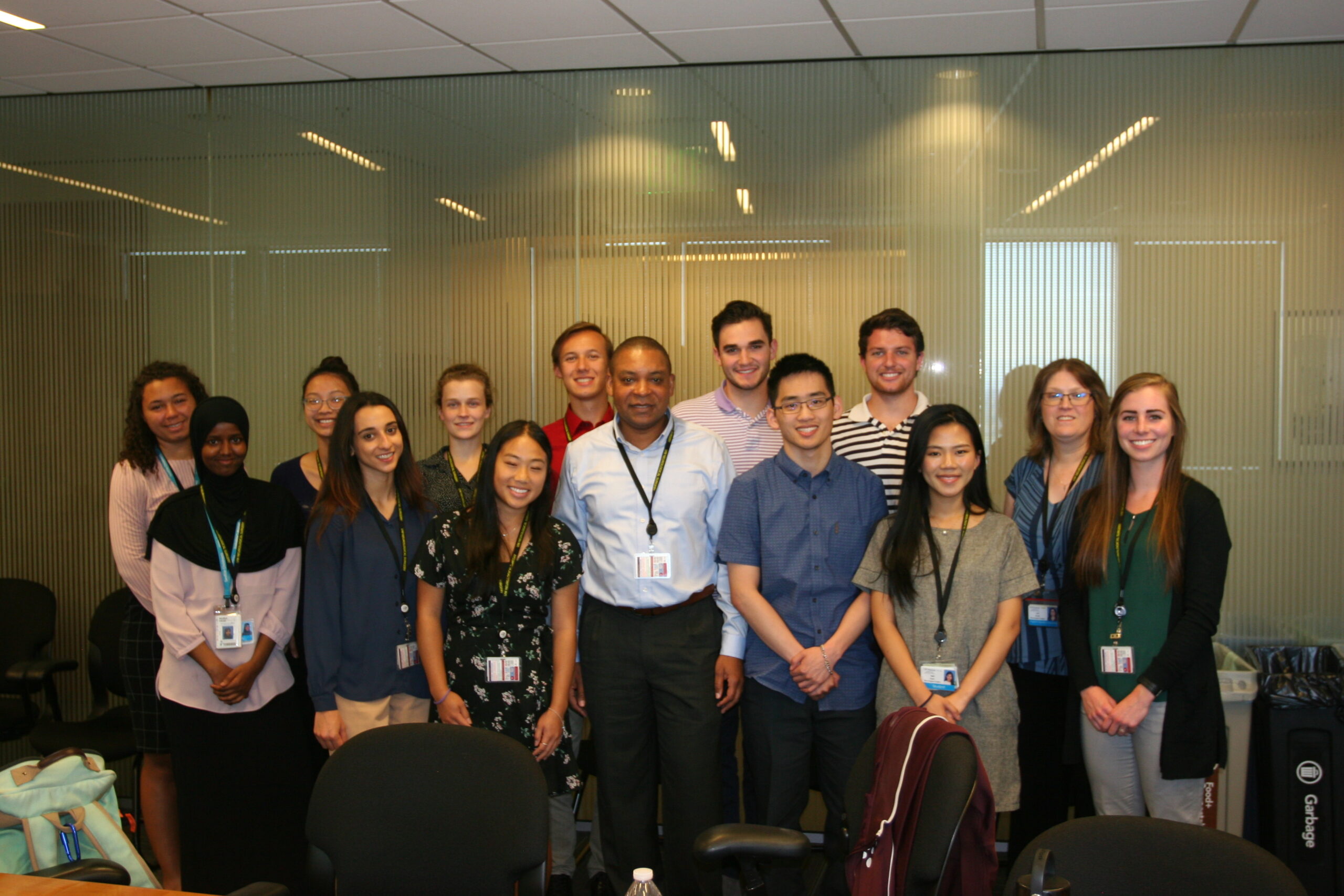
Above: My cohort from UW’s NSSSP program.
That summer was the best one I’ve ever had, and it was after that experience that I decided to pursue a neurology/neuroscience MD/PhD program after I graduated. Before getting into a program like this, however, I needed some more experience working behind the bench. At the time, I was annoyed I had to spend another couple of years before pursuing my dream. Looking back on it now, though I couldn’t be more grateful for that time to pause, work my first full-time job where I wasn’t also a student athlete and reflect on what I wanted my life to look like.
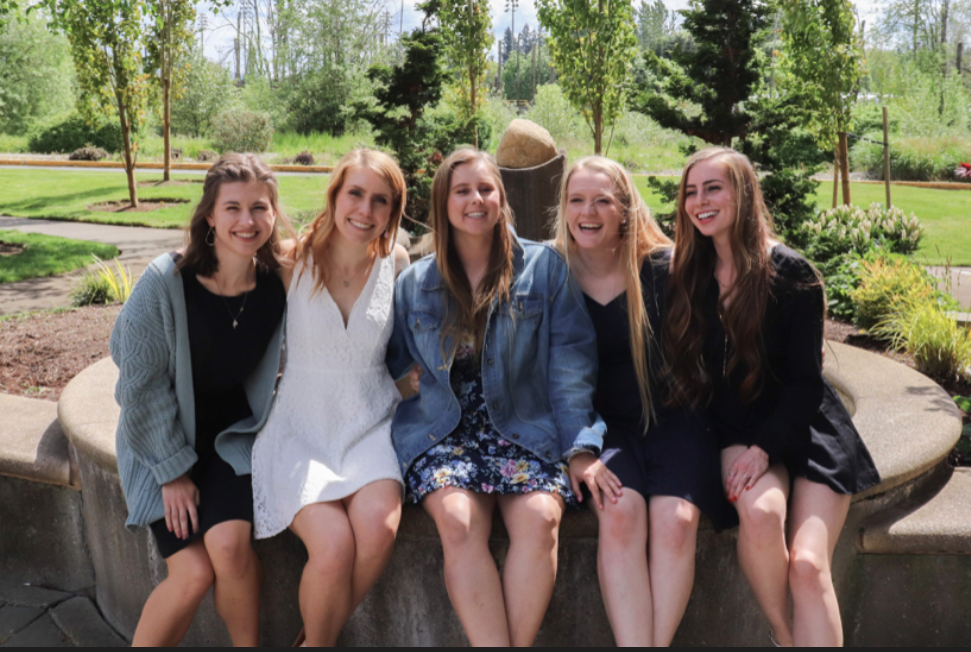
Above: My friends and I enjoying a breath of fresh air after finally graduating.
Post college, I began working at Oregon Health and Science University’s neuroscience institute, the Vollum Institute, where I researched a couple of proteins in the brain. It didn’t take long, however, for me to recognize that academic research was not going to be a fit. Though undoubtedly essential to society, the culture of academia is one that requires a competitive drive and all-encompassing lifestyle that I simply could not justify.
This was a heart-wrenching realization for me. I loved science and had just spent years working toward this goal. If I left the world of research, what was my degree for? What else could I do with a biology degree?
Again, it seemed like medicine was my only option left. However, this was now 2021, and healthcare had been completely devastated from the pandemic. I had just spent a year working in an emergency room and witnessed first-hand what medical professionals endured and how the field changed as a result. Every medical provider I talked to encouraged me to walk away. Some even told me that as soon as their loans from medical school were paid off, they too were leaving for a completely separate industry.
But what else was left for me?
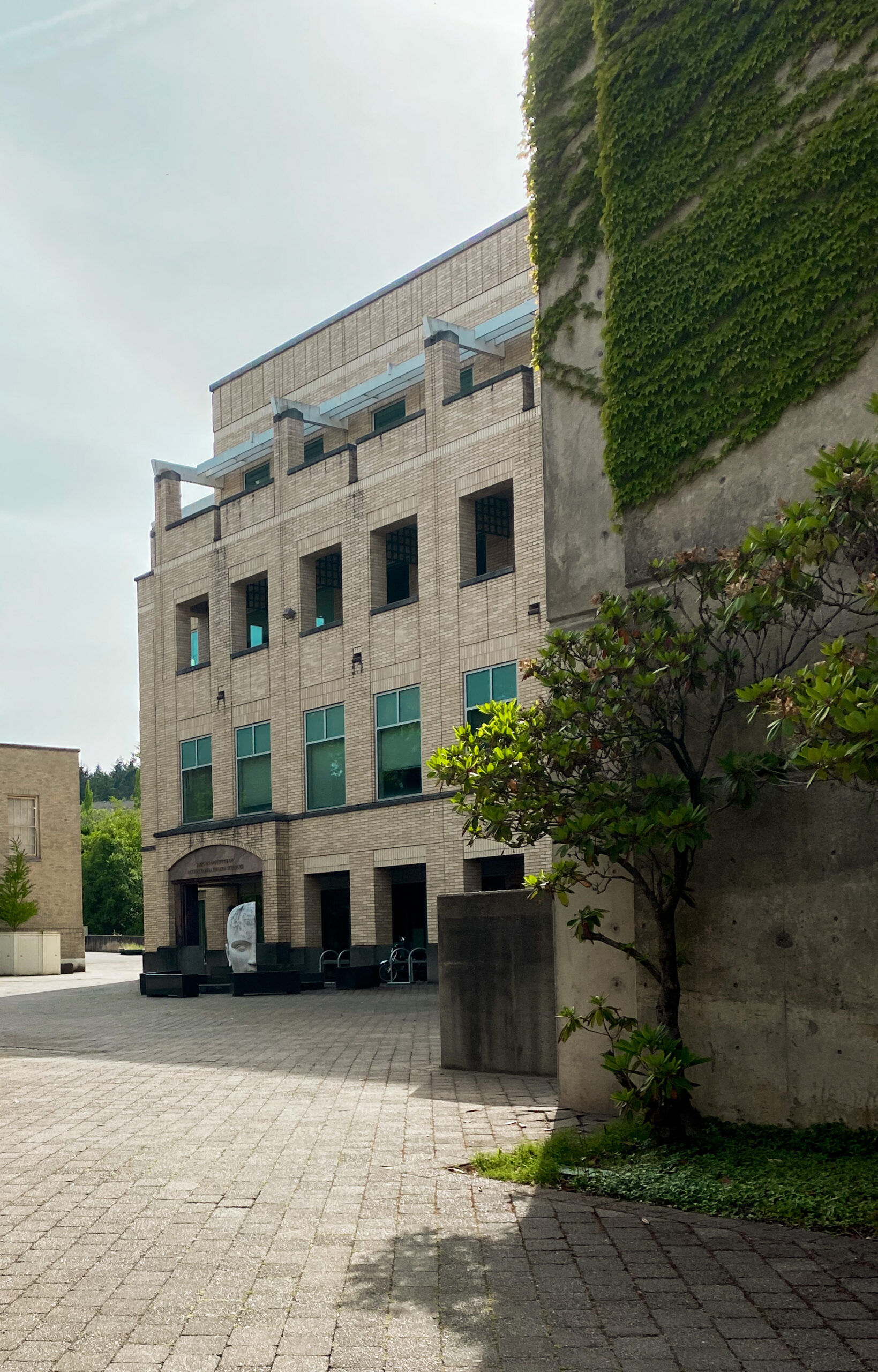
Above: My view from OHSU’s Vollum Institute.
Back to Medicine
I decided that if I didn’t want to get another bachelor’s degree, I had to continue trudging along with medicine. But having seen behind the proverbial curtains of both their administrative and academic culture, I found I couldn’t stay at OHSU. So, I started to look for other options.
Thankfully, I met Dr. Steven Baker through mutual friends, who shared similar frustrations with healthcare as myself. After working in hospitals for most of his career, Dr. Baker started two of his own clinics with unique healthcare models. One was a free clinic, and the other a Direct Primary Care (DPC). DPCs address a lot of the problems patients and providers face when working with insurance-based models by allowing providers to spend more time with their patients and provide them with the care they deserve. After mentoring me for a couple of months, Dr Baker offered me a position as a at his DPC, Main Street Family Medicine.
The job change would be drastic. I’d go from using CRISPR technologies, imaging live brain slices and quantifying protein levels in tissue samples to rooming patients, performing blood draws and running EKGs. Though it was a step back in my career, I took it without hesitation.
Then on to a New Frontier
Once at Main Street Family Medicine, I was again given an opportunity to reflect on my past experiences and started to slowly piece together how I wanted to move forward with my career. Even at Main Street, I was still not enjoying healthcare in this post-covid world. And despite my negative experience in academia, I missed science.
Finally, I realized that the most enjoyable task in all the fields I had tried came from my time in research — analyzing my experimental data. I thrived once my experiments were complete, giving me the chance to find the story hidden beneath the numbers and organize it into clear figures. By working with data, I discovered that numbers and figures help to show the big picture and oftentimes make plain to us what once was a mystery.
Since I had been so hyper-fixated on medicine and research, I had never even heard the term “data science.” But a quick Google search showed me not only that data science could provide the optimal combination of my talents and passions, but there was also a Master’s program available close to home. I became excited about the idea of pursuing data science, and connected with the admissions team at Willamette University the summer of 2023. Through a miraculous set of events — and honestly through no effort of my own — Willamette offered me a very affordable spot in their Master’s in Data Science (MSDS) program that very fall!
I owe a lot to Main Street and Dr. Baker for allowing me to work a flexible schedule during the day while I pursued my master’s by night. He even opened up a new position for me as the Office Manager since he knew I was ending my pursuit of medicine and didn’t need the experience as an MA anymore.
And, Finally, to InterWorks
Fast forward a few months, and I was already able to use some of my new skills at Main Street. Soon enough, I was also helping out at Dr. Baker’s free clinic, the New Heights Clinic (NHC). After graduation, I worked at both clinics doing part admin/project management and part data work. Though I deeply loved my coworkers and the mission of both clinics, I realized that I needed a job with a bit more data and a bit less admin.
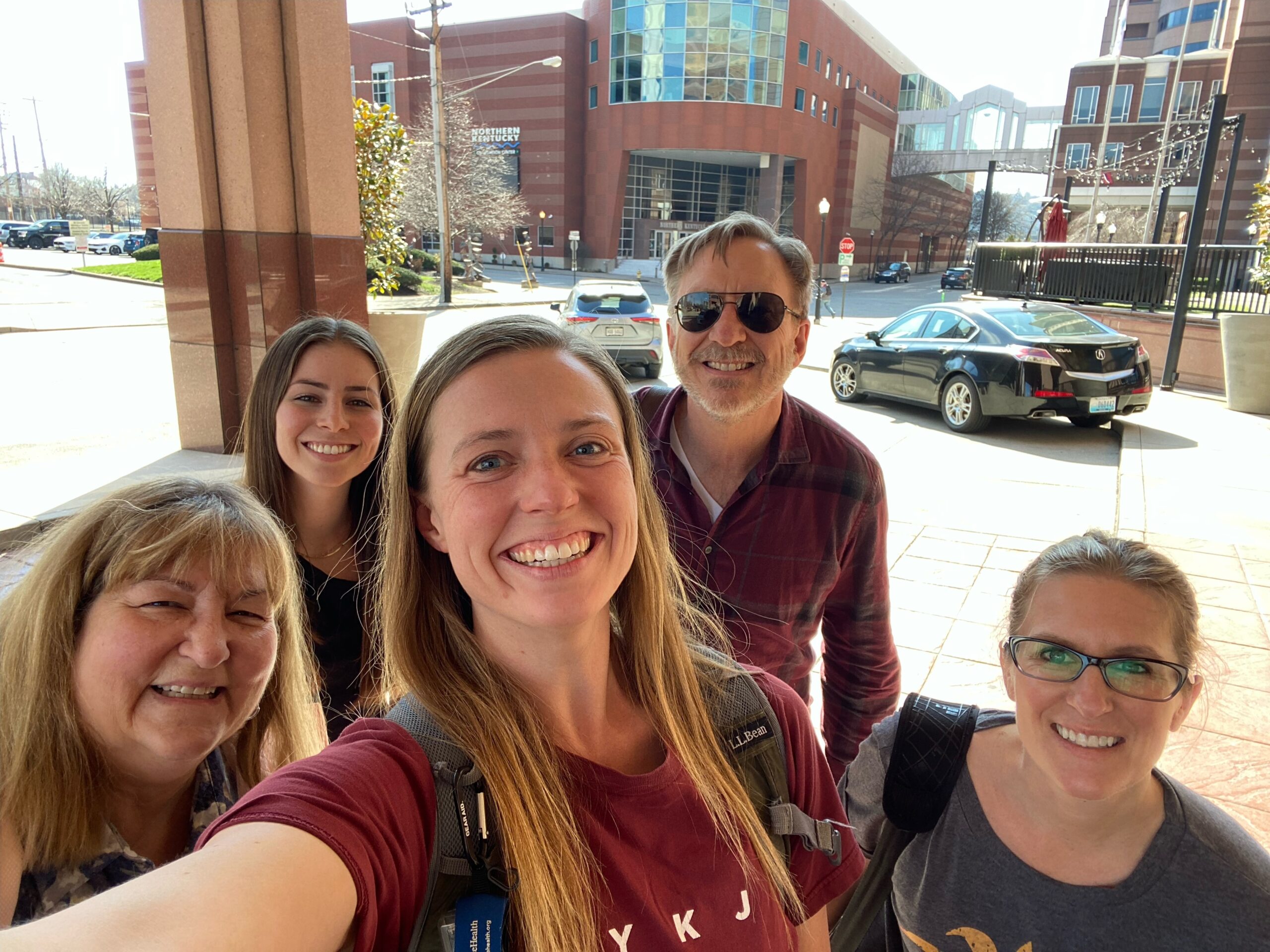
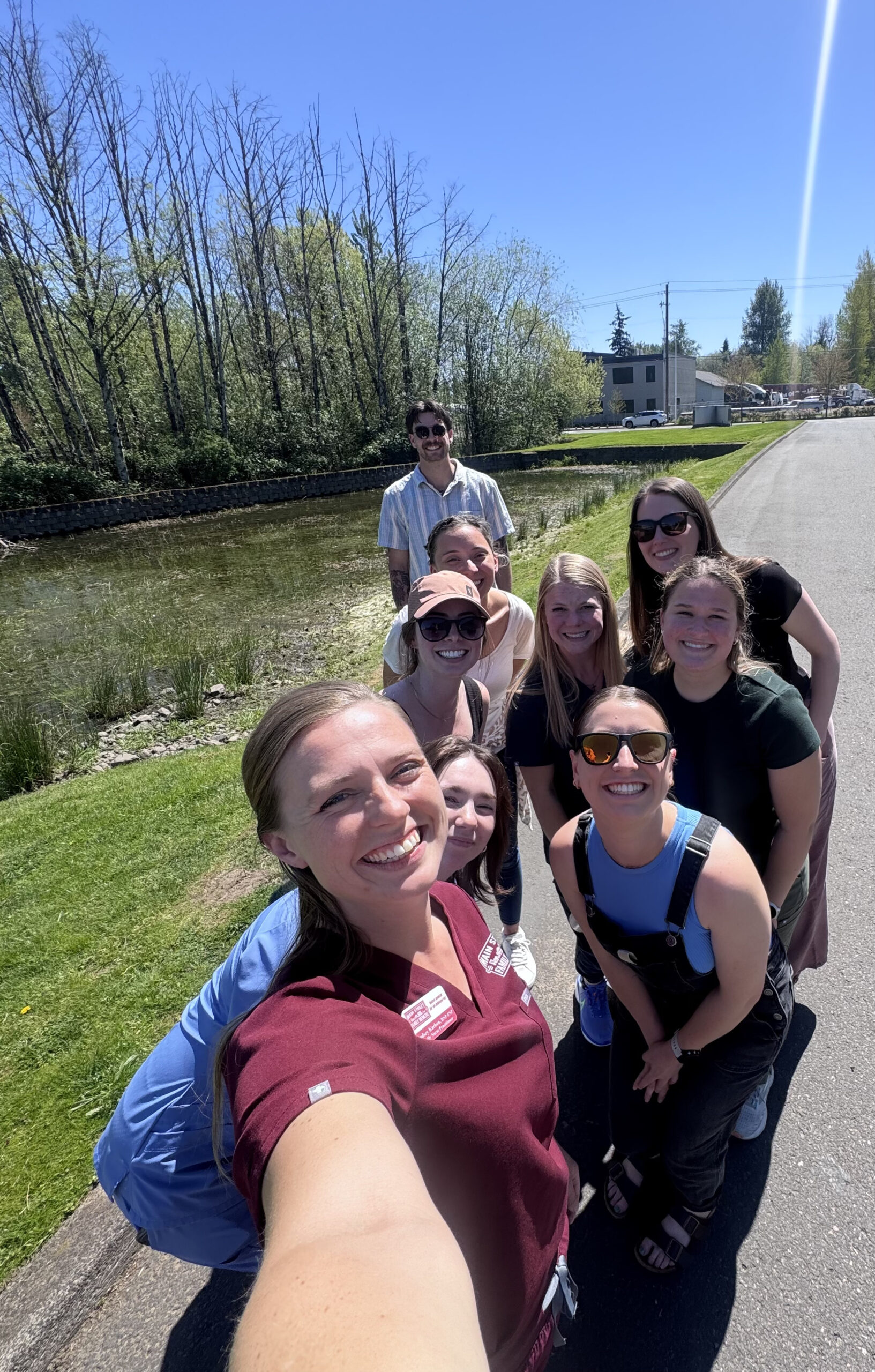
Above: Some of my awesome coworkers from MSFM and NHC.
It wasn’t long after I voiced this concern that I found InterWorks through connections from Willamette. The analytics consultant position seemed perfect, and I eagerly applied. Now, I am writing to you as an InterWorks employee (as of three weeks ago!), and I could not be more thrilled. Though my journey has been discouraging and difficult at times, I am so thankful for each person that played a role and led me to where I am today. I owe a lot to each and every one of them — both my character and my career has been shaped by them.
In this new role, I look forward to life at InterWorks and am stoked to begin exploring the world of consulting! I know that my journey has prepared me for this chapter, and I am excited to discover whatever lies ahead.
